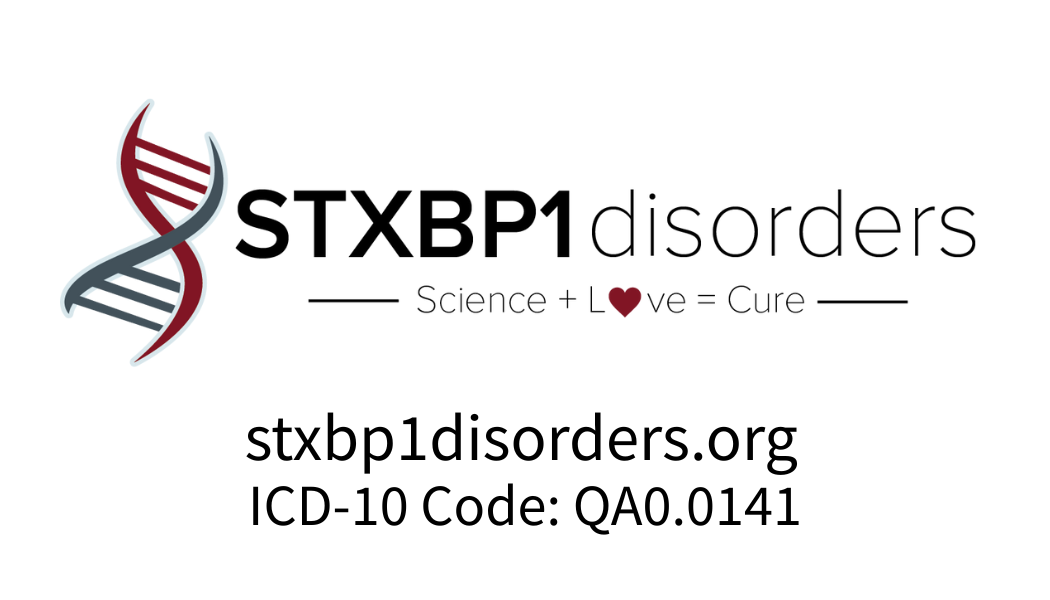STXBP1 has an ICD-10 Code!
We are glad to announce STXBP1-related disorders will have its own ICD-10 code, starting October 1, 2025. The code is QA0.0141.
The STXBP1 Foundation applied for an ICD-10 code in June 2021. Thanks to our community for your support over these four years! More than 3,000 people signed letters in support of our ICD-10 request – including over 125 clinicians and healthcare workers.
What Should I Do?
If your child has an STXBP1-related disorder, tell your doctor about the new ICD-10 code at your next visit. You can download and print this information sheet in color or black and white for your provider.
Why is This Important?
International Classification of Diseases (ICD) codes are used by clinicians every time they see a patient, to record diagnoses, symptoms and procedures. They are now stored in the patient’s electronic medical records (EMRs), enabling a patient’s health information to be more easily shared between clinicians and health care settings. Having an ICD-10 for STXBP1-related disorders enables us to identify patients more quickly, provide better standard of care, and bolster research.
Without an ICD-10 code for STXBP1-related disorders, even if an individual has this genetic diagnosis, it can be difficult to track this critical diagnosis information in the medical record. And, because the symptoms of STXBP1 overlap with a lot of other neurodevelopmental disorders (seizures, developmental delay, intellectual disability, motor issues, etc.), we can't use symptoms to accurately identify STXBP1 patients.
Using the ICD-10 Code for STXBP1-Related Disorders
It’s important to note that the STXBP1-RD code (QA0.0141) is not meant to replace other condition codes; rather, it is used in addition to other codes for related disorders (such as autism or epilepsy). And, an individual may have many ICD-10 codes in their chart, some known symptoms of STXBP1 genetic changes, while others might be unrelated conditions like allergies.
For example, someone with an STXBP1-related disorder diagnosis and epilepsy might have several codes in their chart, including:
QA0.0141 – STXBP1-related disorders
R56.9 – Seizure
Z99.3 – Dependence on wheelchair / wheelchair as ambulatory aid
What’s Next?
In case you were wondering - yes, we’ve already applied for an ICD-11 code. It’s years off from being used in the US and many countries in Europe and around the world but when ICD-11 does go into use, we should have one!
Information Sheet to share with your Provider and business card to carry


